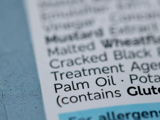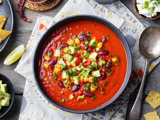The World Cancer Research Fund recommends eating more plant-based foods and less red and processed meat to help prevent cancer.
However, cancer is a complex disease. The risk of developing cancer depends on a combination of factors, some of which you can’t change like your genes.
Cancer Research UK have said 4 in 10 cancers can be prevented by adopting a healthy lifestyle such as not smoking, eating a healthy diet, keeping active, maintaining a healthy bodyweight, and reducing alcohol consumption to within government recommendations.
For more information, read our page on reducing the risk of cancer.





